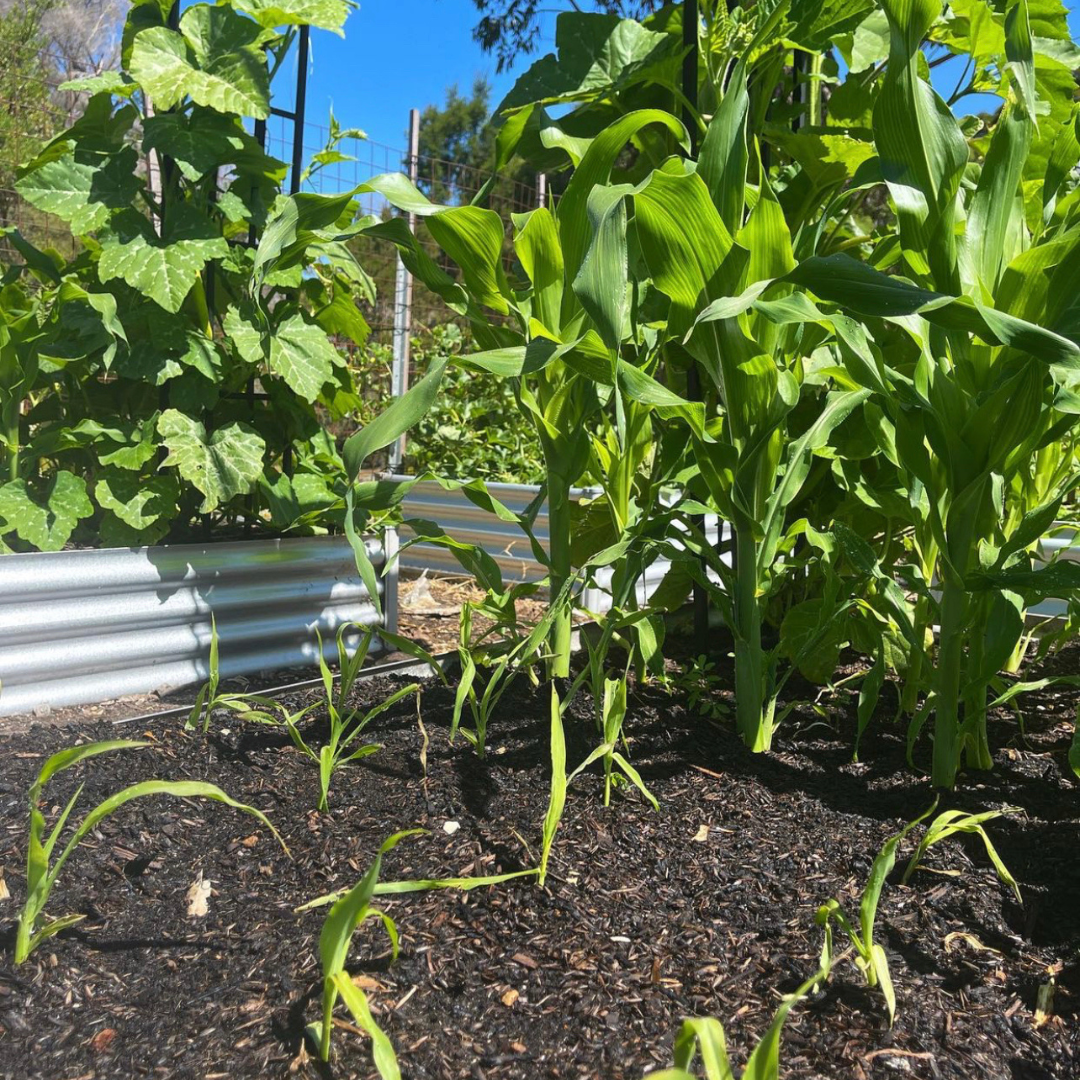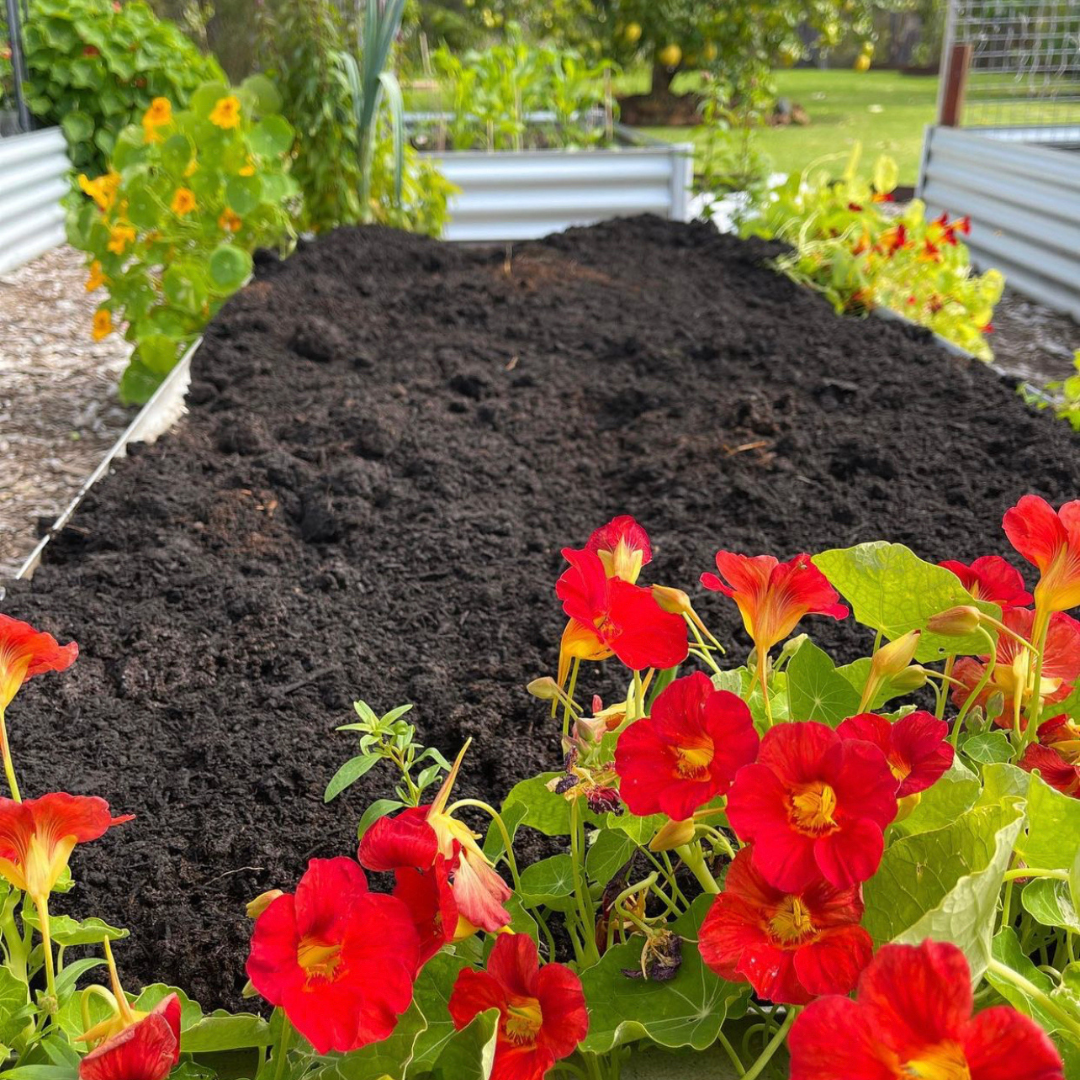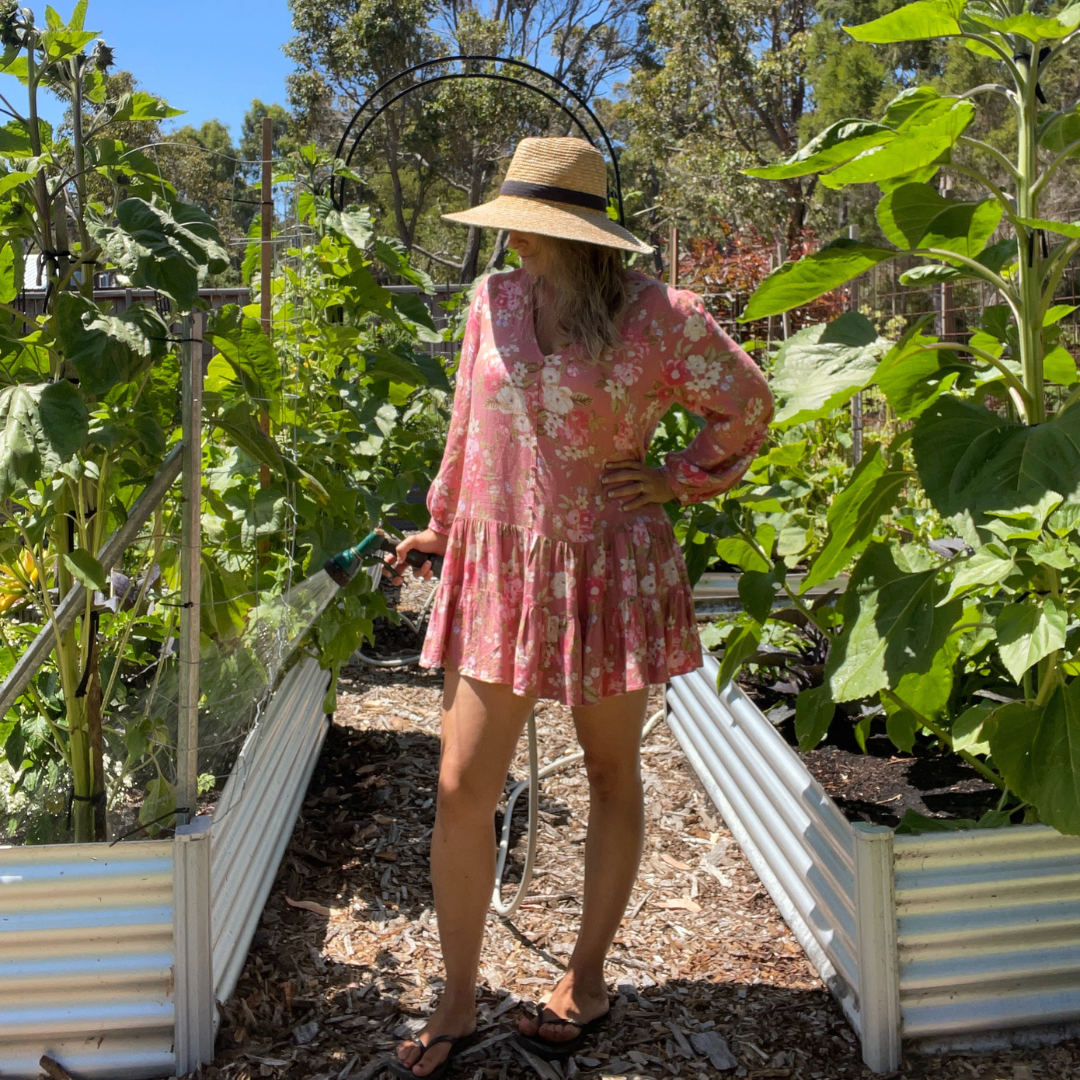
Veggie Garden Mistakes to Avoid
Feb 08, 2023Have you been trying to grow food and it doesn’t seem to thrive?
I know how frustrating it can be when you try to grow food over and over with not much success. It can be really disheartening and you might even be nearly ready to give up. I understand what it’s like because I was a beginner once too!
After helping hundreds and hundreds of new veggie growers around the world with my online program, l discovered some key reoccurring reasons people fail when growing food, some are really easy fixes. There are loads of reasons your garden may not be thriving, but these are some of the most common reoccurring ones I have come across while helping beginners to grow food inside my programs over the years.
Hopefully, this post helps you to identify where you might be going wrong.
Wrong time
This is a big one! Are you confused about what to grow and when?
Have you ever tried to grow lettuce in summer? Maybe you've even planted broccoli in the middle of winter and you were left wondering where the hell it is?
Perhaps you’ve tried to grow something and it just shoots straight to flower or maybe it just is so slow to grow? Do your tomatoes or capsicums never seem to ripen? If you are new to growing food, it’s highly possible you have been trying to plant things in the wrong season or the wrong time for your climate (wherever you live)
It’s not your fault! Big garden centres are known to sell seedlings when they aren’t even in season. How are you meant to know they won’t grow well if the garden centres are selling them!
Wrong spacing
Different veggies thrive with differing amounts of space. Often the labels on seedlings and seed packets tell you the wrong spacing information. I rarely follow the instructions on seedling labels.
It’s likely some things are being planted way too close together and in some cases you may be wasting a lot of space in your garden by planting too far apart. Once you learn how to plant as much as possible while giving them the space they need to thrive, you’ll find your plants produce more food plus you won’t have as many large gaps in-between your veggies so you'll also be making better use of your space.

Lacking Love…. in your soil
Firstly, Bagged soil mix is not made equal. A $3 bag of compost really isn’t going to give your plants a nice foundation with the nutrients they need to thrive. It’s worth spending a little more on high-quality compost (if you don’t make your own) than going the cheapest option. I always suggest that you can source your compost from small local nurseries, rather than your large well-known garden centres it will help.
Secondly, do you know what type of soil your veggies like? Different veggies like slightly different soil & additions to thrive.
I'm all about keeping things simple, so here's a very simple and quick breakdown of what does what for your plants.
Manure - is for nitrogen and promotes green growth
Compost - is for a broad range of nutrients also builds soil over time.
Phosphorus - Helps with bulbing or rooting veggies like carrots and beetroots
Potassium - helps with plant strength and fruiting and flowering
All these elements are important for healthy soil however the amounts of each will vary depending on what you are growing, whats in your soil currently or what's been added previously.
There are loads more minerals your plants love, the above are the very basics and might help you to figure our why your carrots grew such large tops and no bottoms for example.... (food for thought)

Your veggies like slightly different amounts of nutrients depending on the type of veggie. There’s a bit more to creating an ideal soil for your veggies such as drainage, your soil type, rotating crops and succession planting which also helps you to manage your soil for ideal growing conditions for your food.
Presence
How often have you been looking, touching, or being in your garden? Spending a few minutes each day just being present in your garden, and observing things will help you to notice problems early. Whether it be pests or diseases, often if you notice them early, you can intervene if required before it takes over.
If you don’t take notice of your garden, issues may grow quicker than if you had spotted the problem early and then in turn become more challenging to deal with.
So take a moment while you're watering to look closely at your leaves, and notice eggs or insects you may not have seen before. Im not saying you need to spend hours looking at your plants, but Spending some quiet time in the garden (even just 5 minutes a day) will do wonders for your general well-being at the same time.

Sterile & lack of insects
Insects make our veggie gardens go round. If you are using pesticides on your garden to rid “pests” you will likely be killing off or hindering helpful insects that help with our pollination and fruiting veggies. Think caterpillar eggs for example. Caterpillar eggs are great food for ladybugs and Ladybugs help keep aphids at bay. So if you have a sterile garden, free of every pest there is, your helpful friends will suffer too!
The veggie garden is an ecosystem, so encourage a broad range of insects by planting a range of colours and flowers in or around your veggie garden. If you are short on space, don’t worry, Even a single sunflower can draw bees in or one fennel plant can draw in ladybugs and other helpful insects.
So, which mistakes do you think you might have made?
If you're tired of lack lustre plants and not growing the amount of food you would like, I'd be excited for you to join me in my online program "Grow Your Patch". Do it once, have the knowledge for life!
Happy Gardening,
Sarah

